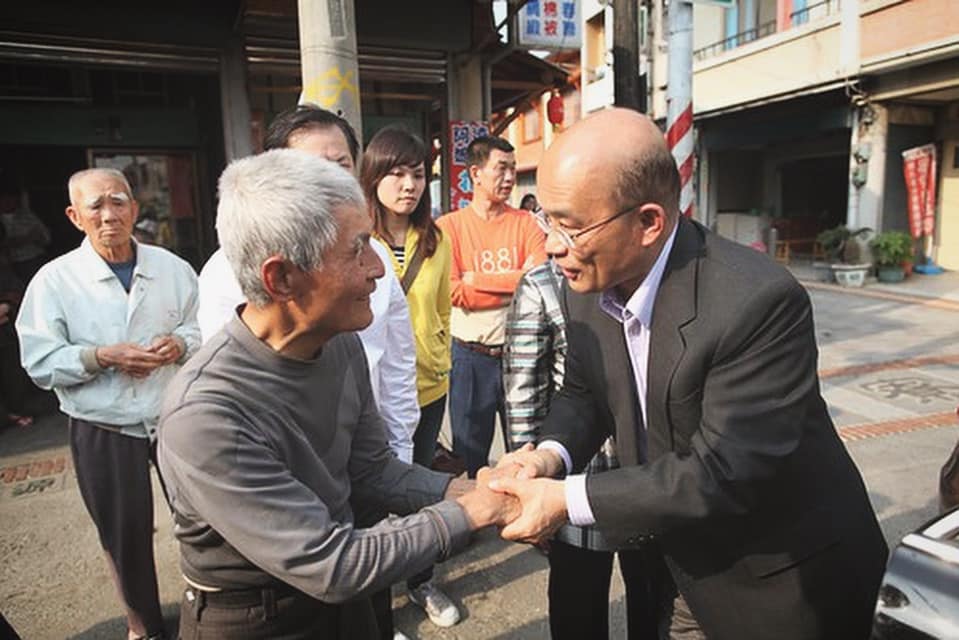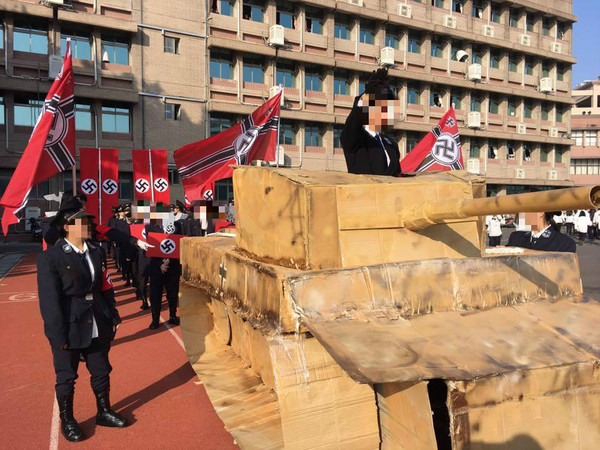by Brian Hioe
語言:
English
Photo Credit: Justin Smith/WikiMedia Commons/CC
AN INCIDENT at a college basketball game involving a Sengalese-Taiwanese player being called the N-word by a member of the opposing led to strong reactions earlier this month, including comments by Premier Su Tseng-chang, who stated that racial discrimination was unacceptable in Taiwan.
The incident in question took place during a basketball game between Shih Hsin University and National Taiwan Normal University (NTNU) which was part of a tournament held by the University Basketball Association. The game in question was the quarterfinal of the tournament. NTNU player Lin Shih-hsuan called Shih Hsin player Mohammad Al Bachir Gadiaga the N-word four seconds before the end of the game, with Shih Hsin players trying to prevent NTNU players from achieving a narrow victory by running out the clock.
 Premier Su Tseng-chang (right). Photo credit: Su Tseng-chang/Facebook
Premier Su Tseng-chang (right). Photo credit: Su Tseng-chang/Facebook
Subsequently, Bachir and Lin tussled, before being separated by a referee. The referee gave both sides a technical foul, but did not act on Bachir’s complaint.
After the game, Lin apologized to Bachir and the Shih Hsin team. Bachir stated that he had forgiven Lin. Nevertheless, reactions afterward were large enough that the Sports Administration stated that such behavior was unacceptable during sports games and, apart from making similar comments about the unacceptability of racism, Premier Su Tseng-chang has called for an investigation into an incident.
That there were such immediate reactions to the incident from high-ranking government officials comes as somewhat of a surprise. Taiwan has, for example, seen several noteworthy incidents of blackface in recent years, such as when a number of Taiwanese dance groups including Wackyboys and Luxy Boyz appeared in blackface to perform the “Ghanaian coffin dance” that became viral worldwide last year, and when Mandopop singer Jam Hsiao appeared in blackface as part of a Halloween costume in 2019. Strangely enough, outrage over blackface in performances of the coffin dance remained primarily confined to Wackyboys, but not Luxy Boyz, and neither group seems to have formally apologized or been pressured into an apology. A video of a racist rant by a Taiwanese man directed at a Black person recently was widely discussed.
It may be the case that reactions quickly ensued to the basketball incident between NTNU and Shih Hsin University because of increased international scrutiny on sporting events in Taiwan during the COVID-19 pandemic. Because of Taiwan’s successes fighting off the pandemic, Taiwan was noted as one of the few places in the world able to hold sports events such as basketball and baseball games.
This would hardly be the only recent involving racial slurs or imagery that has attracted unwelcome international attention for Taiwan in recent years. In 2016, a high school in Hsinchu drew anger after a student skit in which students dressed as Nazis riding on a cardboard tank as part of an elaborate performance that their teacher also participated in. There have also been repeated incidents of restaurants, betel nut stands, or other establishments displaying Nazi flags.
 Photo of the Hsinchu high school incident. Photo credit: Social media
Photo of the Hsinchu high school incident. Photo credit: Social media
Either way, one expects such issues regarding discrimination to resurface in Taiwan. It is generally thought that Taiwan is becoming more racially diverse, particularly with increased immigration to Taiwan from Southeast Asia. One in ten elementary or middle school children is thought to have a foreign-born parent at present.
At the same time, that does not mean that issues regarding racial discrimination in Taiwanese will go away overnight either. Apart from the long hours for low wages worked by migrant workers, sometimes in occupations considered “dirty, demeaning, and dangerous,” one notes lack of sensitivity regarding racial minorities such as Taiwanese Indigenous. While President Tsai Ing-wen—who is herself a quarter Indigenous—apologized to Taiwanese Indigenous on behalf of the ROC government in 2016, the performance that preceded her inauguration referred to Indigenous as “barbarous” and in need of civilizing by western missionaries. As recently as last September, the chair of the judging committee for the Golden Bell Awards—Taiwan’s major awards for television and radio programs—saw fit to suggest that Indigenous should make ape noises while presenting an award to two young Indigenous radio hosts.
Such incidents did not lead to such quick responses from the Taiwanese government, probably because they were unlikely to be widely reported on internationally. However, such incidents point to longstanding issues regarding racial discrimination and lack of cultural sensitivity in Taiwan.

